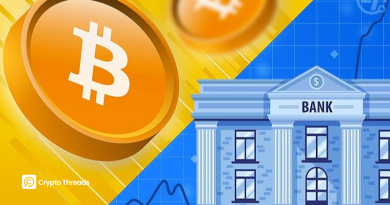Sweden’s Justice Minister calls to “turn up the pressure” on crypto seizures
Key Takeaway: Sweden has seized over $8.3 million in criminal assets since the new law took effect in November 2024, allowing confiscation of luxury items and cash even when owners are not under investigation.
Gunnar Strömmer confirmed Swedish authorities confiscated $8.3 million in criminal profits since 2024. Crucially, he declared: “We’re broadening asset recovery to undermine organized crime’s financial infrastructure.”
Sweden’s Justice Minister has called on local authorities to focus on crackdowns that could yield larger seizures of assets including cryptocurrency under a 2024 law that allows the confiscation of luxury items and cash from individuals even if they aren’t the target of an investigation.
Building on this, Strömmer asked police, tax authorities, and enforcement units to prioritize high-yield cases targeting crypto, real estate, and corporate assets. According to Dagens industry’s exclusive report, he specifically demanded intensified focus on digital currency seizures:
“Now it’s time to turn up the pressure even more by pursuing major criminal asset pipelines.”
This enforcement surge stems from Sweden’s November 2024 law permitting confiscation without investigations. While $8.3 million was seized overall, the crypto portion remains undisclosed – suggesting ongoing blockchain analysis.
Officially clarified in October 2024: “It’s possible to confiscate criminal-origin assets like cryptocurrency wallets regardless of prosecutable offenses.”
“This means that a person who, for example, has large amounts of cash, sizeable bank assets or luxury articles may forfeit them if he or she does not have an income that is proportional to the property and cannot otherwise explain where it comes from.” – they explained
The standard requires: “Individuals possessing cash exceeding €10,000, luxury watches, or unexplained bank assets must prove legitimate origin or face permanent forfeiture.” This controversial approach saw $1 million seized in its first week, including The Economist’s December report of a traveler losing $137,000 and Rolex at Gothenburg Airport.
Lawmaker calls for a Bitcoin reserve
In April, MP Rickard Nordin formally proposed that Sweden retain seized Bitcoin as national reserves, a move he urged should emulate the US “budget-neutral” model, where crypto remains state property rather than being liquidated. This proposal runs in parallel with ongoing financial innovation.
In the United States, US President Donald Trump issued an executive order in March to establish a national crypto reserve. The action by the country behind the world’s biggest economy may have prompted lawmakers in other jurisdictions to call for digital asset stockpiles.



